Published Oct 26, 2024 | 9:00 AM ⚊ Updated Oct 27, 2024 | 6:02 AM
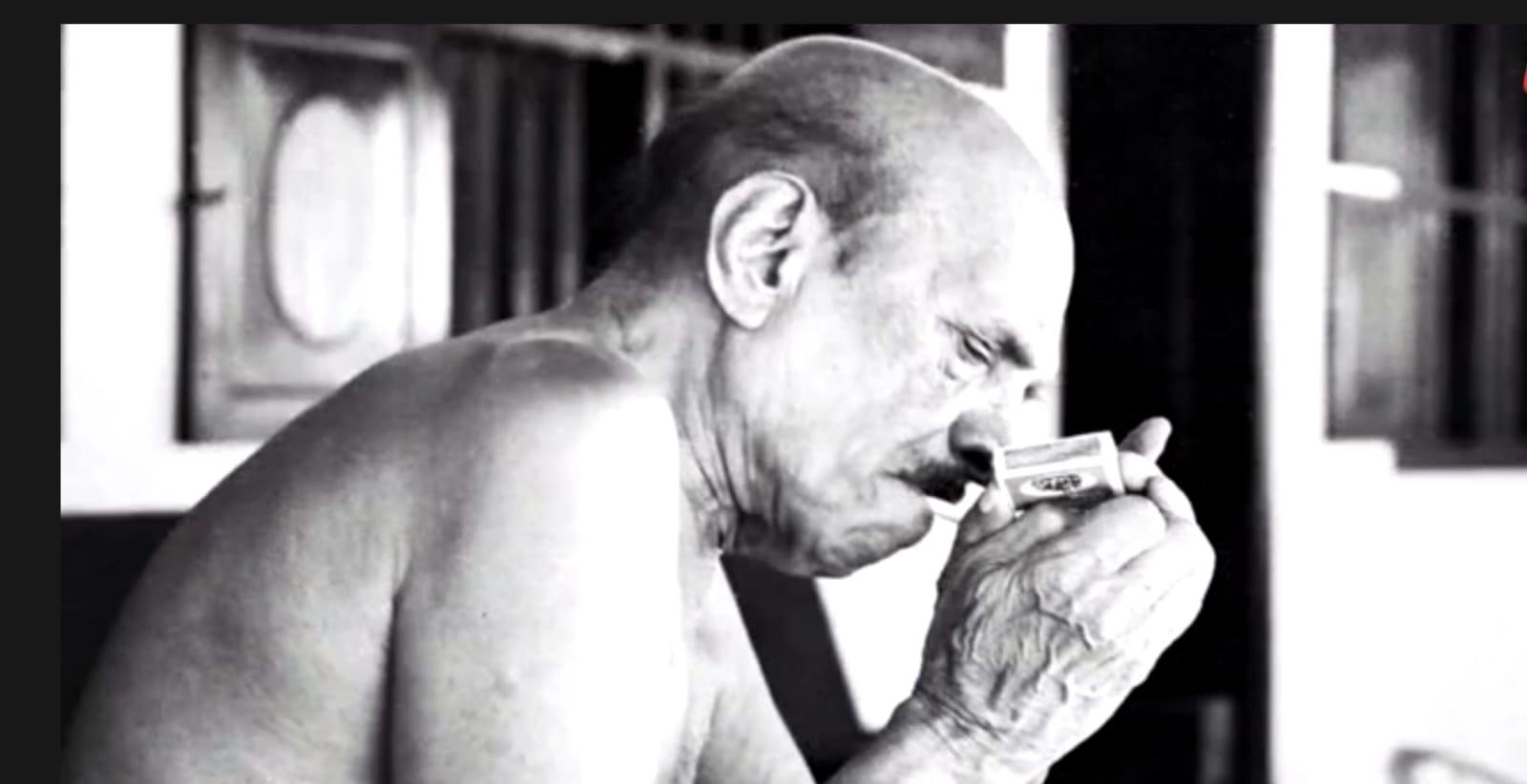
Vaikom Muhammad Basheer (21 January 1908 - 5 July 1994). courtesy - Punalur Rajan
The city of literature, Kozhikode, has added another feather to its cap with the first-ever museum dedicated to Vaikom Muhammad Basheer.
The museum – Mathilukal Basheer Museum – is a testament to the enduring legacy of the “Beypore Sultan” — as Basheer is known — and will offer visitors a glimpse into the life and works of one of the most beloved figures in Malayalam literature.
Even though Basheer passed away in 1994, his works continue to captivate readers because of his simplicity, wit, and profound humanism, making him a timeless and beloved literary figure.
His ability to capture the essence of human experiences, from love and loneliness to poverty and freedom, has made him an iconic figure, who resonates with readers across generations.
‘Mathilukal’ (The Walls), the title of one of Basheer’s brilliant works, was inaugurated on 24 October at the Dayapuram Educational and Cultural Centre in Chathamangalam.
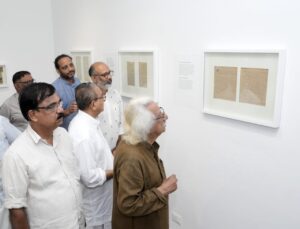
Adoor Gopalakrishnan at Mathilukal.
Inaugurating the museum, filmmaker Adoor Gopalakrishnan lauded the initiative for capturing Basheer’s essence through a unique blend of personal memorabilia, manuscripts, and life records.
“Although previous efforts were made to create a memorial for this towering literary figure, they have not materialised for various reasons,” Adoor, who made the homonymous movie “Mathilukal“, remarked.
“This museum fills that void by presenting Basheer’s life and philosophy in a simple, yet meaningful way. To truly bring his legacy to life, audio-visual technology and new tools must be integrated to give visitors a complete experience of Basheer’s world,” he stated.
Reflecting on Basheer’s philosophy, Adoor highlighted the writer’s timeless message of coexistence—an idea that resonated with both children and adults.
“Basheer believed that every living being—humans, animals, and nature—has an equal right to this earth. It is a thought so profound yet expressed in a way that even a child can grasp,” Adoor said.
Adoor also offered rare insights into Basheer’s writing process.
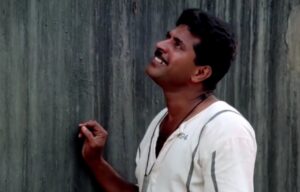
Mammootty as Vaikom Muhammad Basheer in ‘Mathilukal‘ (1990)
“He began Balyakalasakhi in English but later decided to write it in Malayalam. Yet, it took him eight years to complete, as he would painstakingly rewrite and edit until he felt it was perfect. Basheer wrote only when the inspiration struck him. If the right words weren’t available in the language, he would create his own,” he stated.
The director fondly recalled his personal bond with Basheer.
“Though the film ‘Mathilukal‘ brought me many state, national, and international accolades, the biggest reward was the friendship I forged with Basheer. I still remember Mammootty telling me how fortunate he felt to portray Basheer while the writer was still alive,” Adoor recollected.
Mammootty received his first National Film Award for Best Actor in 1990 for Oru Vadakkan Veeragatha and Mathilukal. He played Vaikom Muhammad Basheer, imprisoned on charges of sedition.
Talking to South First, museum curator Dr NP Ashley, who is also assistant professor, Department of English, St. Stephen’s College – New Delhi, said, “It was in 2020-21 that the initial idea of coming out with a venture of this kind sprout and that too in a conversation with academician Dr MM Basheer.
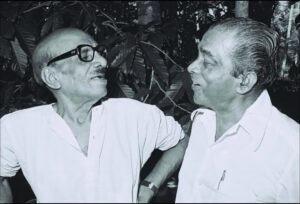
Basheer and writer-traveller SK Pottekkatt.
courtesy – Punalur Rajan
“He then told me that though a plan was there to start a museum for Vaikom Muhammad Basheer it couldn’t be materialised. I gave it a thought and with the help of the centre the works for the museum was started in 2022,” he said.
Ashley then contacted his friend KL Leon who in turn connected him with Sijo Cyriac from Bengaluru-based Little River Architects. While Leon carried out the museum’s artistic design, the architecture was handled by Sijo.
“When we planned the museum we want to present three different phases of his life – his political activism between 1925 and 1940s, his profound cultural writings in the 1940s to 1960s and his spiritual and ethical explorations before his passing in 1994,” Ashley said.
He also stated that of the collections in display at the museum includes rare pieces like Basheer’s handwritten works and unpublished works such as Kaamukante Diary and Mucheettukalikkarante Makal, the original English pages of Balyakalasakhi (1936), the screenplay of Bhargavi Nilayam, and personal letters he exchanged with literary critique Sukumar Azhikode and others.
In the political activism section, Basheer has been presented as an Indian freedom fighter who participated in the Salt Satyagraha, got arrested and was imprisoned in Kozhikode Sub Jail.
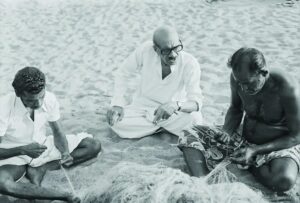
Basheer with fishermen.
courtesy – Punalur Rajan
His participation in the Vaikom Satyagraha and in the struggles against the dictatorship in Travancore has also been included.
Then comes his cultural phase in which he is part of Kerala’s literary friendships that herald a new sensibility in Kerala and is deeply involved in presenting Kerala Muslim social life for the Malayali literary mainstream, while critiquing misogynist, feudal and inhuman tendencies within the community.
It was during this phase he blurred the lines between fiction and reality, offering a slice of life that is raw, humorous, and deeply philosophical. During this period, he also pioneered the art of literary minimalism, relying on simple plots and ordinary characters to convey profound truths about life.
After this comes his period of spiritual-ethical seeking in which he formulated an ethical project with environmental concern at the centre of it.
Briefing on why the museum has been named as Mathilukal, Ashley said, “The consciousness about walls is foundational to Basheer’s life and writing. If his political activism was to come out of the walls of British colonialism, his social thinking was how people can grow beyond the boundaries of faith and community to actualise themselves.”
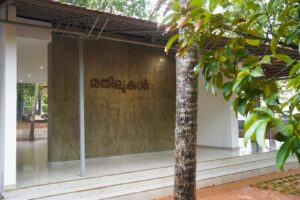
Mathilukal, the museum.
He also added that through a presentation of his manuscripts, letters, books, photos and textual presentation with its open space for reading and conversations, and aided by the plants and trees around, this first Basheer museum is a tribute by the Dayapuram collective to one of its inspirational figures.
The museum also features a separate section of Basheer and Dayapuram as Basheer is one of the three founder advisors of the Al Islam Charitable Trust, which runs Dayapuram.
Pictures of his visit, guestbook entry and newspaper reports also included in this section.
The organisers believe that the initiative will inspire young minds to understand Basheer more and that includes his innovative storytelling techniques and his ability to find beauty in the ordinary.
“Basheer’s works offer a rich tapestry of Kerala’s culture, history, and society. The museum can provide young people with a deeper understanding of their heritage and the contributions of literary figures like Basheer,” Ashley said.
The museum will be open daily until November 3, after which it will function every Saturday from 10 am to 5 pm.
(South First neither endorses nor encourages smoking, which is injurious to health. Edited by Majnu Babu).

